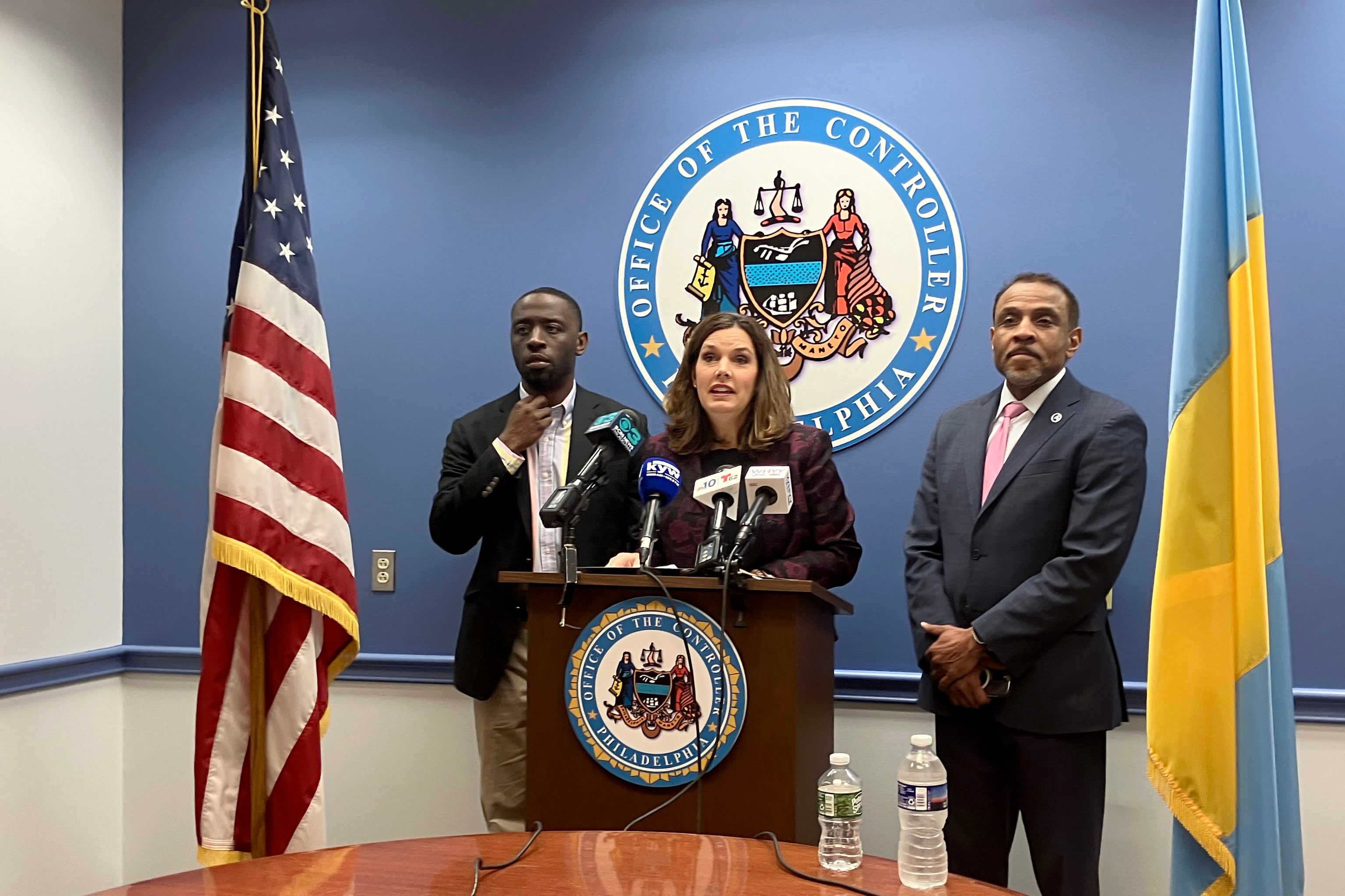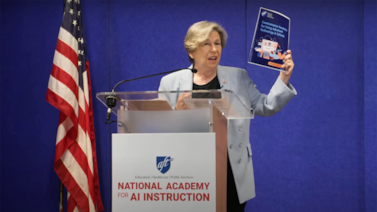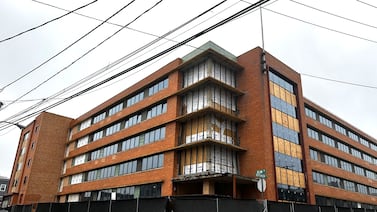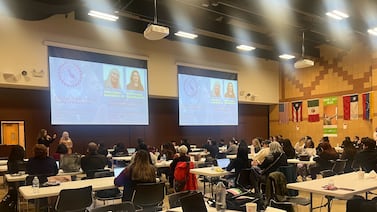Sign up for Chalkbeat Philadelphia’s free newsletter to keep up with news on the city’s public school system.
The Philadelphia School District fell victim to a $700,000 wire fraud scam last year, city and school leaders said Thursday. It is asking the state attorney general to investigate.
City Controller Christy Brady said that during the district’s annual audit, her office was informed that nearly $700,000 in payments made to vendors for flood damage repair and compensatory services for students with disabilities was instead diverted to the bank accounts of “malicious bad actors” rather than the contracted vendors.
“It appears the bad actors gained unauthorized access to the school district’s banking data or manipulated existing payment systems to send unauthorized funds to their own accounts,” Brady said at a press conference Thursday. “This was a cyberattack on the school district.”
Superintendent Tony Watlington said while the vendors did not receive their payments, the repair work and services owed to those students was provided.
Watlington said the district reported the fraud to the FBI and has since “implemented a number of measures to enhance internal controls,” but declined to provide more details because of the investigation.
Brady’s office discovered four instances of fraudulent payments to two vendors in 2024, she said. One payment was for over $563,000 for flood damage repair work and the other three were for a total of more than $126,000 for services for students with individualized education programs.
According to Brady, all district vendors are set up to receive paper checks as payment, but in the instance of these four payments, someone impersonating the vendors requested that money be sent electronically via an Automated Clearing House — or ACH — payment. The money never reached the actual vendors, Brady said.
In a statement after the press conference, district spokesperson Monique Braxton said “at no time was there reported compromise to either the District’s financial data system or the student data management system.”
Brady and Watlington appeared alongside City Councilmember and Education Committee Chair Isaiah Thomas on Thursday to emphasize that the city and district are seeking to recover those funds. They did not say when the vendors would be paid.
School districts across the country have been hit with wire fraud scams similar to what the Philly school district experienced in recent years. In many cases, districts have been unable to recover the money. However, in one Florida community, a school superintendent said 92% of stolen funds were recovered after someone impersonated a construction vendor and falsified bank account information.
While Brady said her office and the district are “committed to full transparency” on this issue, they did not identify specific vendors, financial institutions, or other details regarding the payments, saying “we do not want to compromise any ongoing investigations.”
Carly Sitrin is the bureau chief for Chalkbeat Philadelphia. Contact Carly at csitrin@chalkbeat.org.






